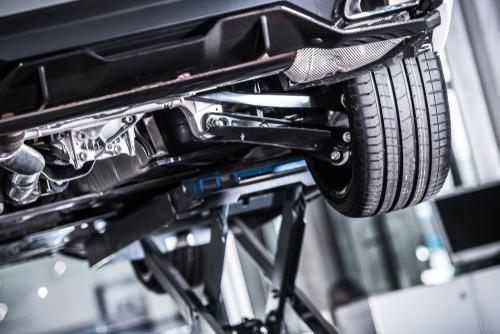Millions of vehicles are recalled each year, which means you could potentially be driving one. Typically when a vehicle is recalled, it has a safety-related defect that needs to be rectified in order to keep you safe on the road. Often these defects relate to the brakes, steering, seat belts, air bags, and other aspects of a vehicle that make them safe. If you find out you have a vehicle that’s been recalled, the vehicle’s manufacturer is required to repair or replace it, or otherwise refund it for you. In this article, we’ll cover the ins and outs of vehicle recalls so you can determine whether yours is on the recall list, and if so, what to do about it.
How Do You Know if Your Vehicle Has Been Recalled?
Your automobile’s manufacturer is required to notify you within 60 days of your vehicle being recalled. However, you can check the recall status of your vehicle at the National Highway Traffic Safety Administration (NHTSA). In fact, the NHTSA recommends checking the status twice a year for any recall. To do this, you simply look up your vehicle identification number (VIN) in their database, or search using your car’s make, model, and year.
What to Do If Your Vehicle Is Recalled?
If you find out your vehicle has been recalled, the first step is to read the recall letter from your car’s manufacturer. It will inform you of the cause of the recall, whether you need to stop driving the car, and what safety risks it poses. It will also tell you the next steps you should take in order to get the vehicle fixed or replaced at your local car dealership. It’s important you do take action to get your car repaired, replaced or refunded, because continuing to drive a recalled vehicle is hazardous.
Are You Required to Pay for Repairs?
If your recalled vehicle is over 10 years old, your manufacturer may require you to pay for the repairs. If not, they should cover the expenses for you. If you repair the car yourself, you’re eligible for a reimbursement, but it’s recommended to have the manufacturer handle the problem.
What Have Been the Largest Vehicle Recalls in the Past Year?
Ford – In 2018, Ford recalled over 1.6 million regular- and crew-cab pickup trucks after discovering a fire hazard. Ford Focuses were also recalled that required canister purge valve replacements.
Honda, Toyota, and Acura – 41 models of Honda and Acura, plus 32 Toyota models, were recalled in 2018 due to defective Takata airbags. The passenger airbags are potentially explosive and need to be replaced.
Chrysler – Fiat Chrysler’s Ram 1500 pickup trucks were recalled for faulty tailgate latches that needed to be replaced.
General Motors – General Motors recalled several of its vehicles, including the 2015 Cadillac Escalade, Chevrolet Tahoe, Chevrolet Suburban, Chevrolet Silverado 1500, GMC Sierra 1500, and GMC Yukon.
Volkswagen – Volkswagen recalled four Tiguan models due to loose engine support bolts. Bugatti Chirons also got recalled for side airbags that weren’t deploying properly.
Mercedes-Benz – Mercedes recalled several GLE-class models for loose sunroofs that needed tightening or replacement. Plus, two Mercedes-AMG GT convertible cars with faulty airbag control units were recalled.
BMW – BMW recalled their 4-series 2019 models due to defective passenger airbags. Their 7-series cars were also recalled recently for faulty engine-computer programming that could lead to engine stall. Three Rolls-Royce cars with airbags that weren’t inflating also got recalled and replaced by dealerships.
Porsche – Some Porsche Macans were recalled for potentially defective control units that affected the safety functions in the cars.
Vehicle Maintenance: Covering Your Bases
With so many vehicle recalls each year, it’s hard to know whether you’ll need maintenance on your car. You need your car to be reliable and safe, so investing in an extended warranty plan can do wonders in saving you maintenance costs, keeping you safe and ensuring your vehicle is always ready for use.
When buying a new car, it’s almost impossible to guarantee its safety or to know what sort of maintenance it will need down the line. Even if you’re buying a new car from a reliable brand or you know a few things about DIY car maintenance, you could be in for some professional repairs if the vehicle is recalled. Extended warranties lower your financial risk as a car owner and give you peace of mind while you’re racking up miles on your car. Getting bumper-to-bumper coverage on repairs and replacement parts saves you a lot of headaches when something goes wrong and you need your car.







